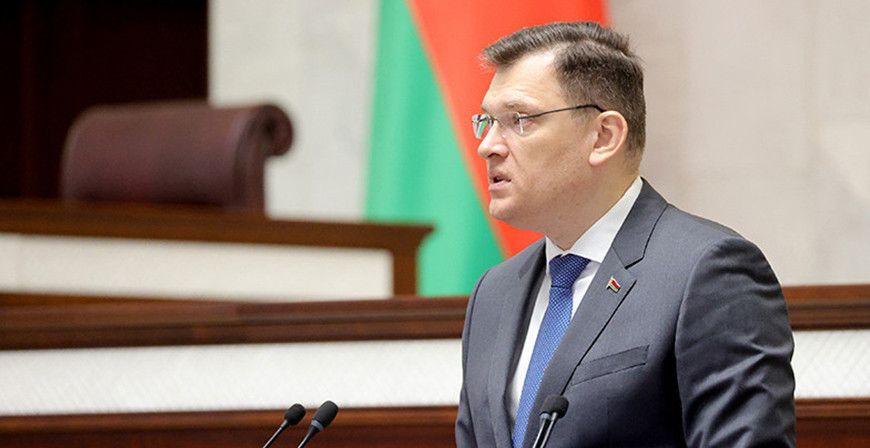MFA: Belarus still spearheads international cooperation on Chernobyl
14:37, 23 April

photo: BELTA
Belarus has retained its authorship and leadership in promoting international cooperation on minimizing the Chernobyl aftermath, Belarusian Deputy Minister of Foreign Affairs Yuri Ambrazevich said at a meeting of the Council for Sustainable Development in Minsk dedicated to the International Chernobyl Disaster Remembrance Day, BelTA has learned.
- Share on Facebook
- Share on VK
- Share on Twitter
Recalling the post-Chernobyl history, Yuri Ambrazevich noted that people in Belarus were not left one-on-one with the tragedy: "International solidarity around Chernobyl has become the best example of public diplomacy and engaged international cooperation. We appreciate the contribution of the international community, including the UN system, to the reconstruction and development of the affected regions. The United Nations Development Program has a special role to play in this area." Yuri Ambrazevich expressed his gratitude to all the countries that have helped, are helping and, I would like to believe, will continue to help in improving the health of children from the affected regions.
"Despite a number of successes on the way to the revival of the affected regions, much remains to be done. The topic of the Chernobyl aftermath will remain relevant in the long term. After all, part of the territories will never be suitable for life," the deputy minister said.
He recalled that for this reason, in 2016 Belarus spearheaded the effort to keep the Chernobyl issue on the international agenda and initiated a corresponding resolution of the UN General Assembly. Its main message is the need to continue Chernobyl cooperation under the auspices of the UN in order to achieve sustainable development of the affected regions both in Belarus and in other countries.
“Unfortunately, we have to note the deepening politicization of the Chernobyl cooperation issue today,” Yuri Ambrazevich said. “In spite of everything, Belarus retains its authorship and leadership in promoting international cooperation to mitigate the consequences of the Chernobyl disaster.”
Belarus’ experience in radiation medicine, in overcoming the consequences of land contamination, as well as the know-how acquired by the country for more than 35 years in recovering the affected land and obtaining clean products - this is our country's contribution to the global experience, Yuri Ambrazevich said. “We have been sharing our experience with the IAEA and other UN agencies,” he said.
According to him, the Belarusian society managed to overcome all the psychological traumas associated with the Chernobyl tragedy and consciously came to the decision to build its own nuclear power plant. “We turned out to be a nation capable of joining the club with the highest technological potential in electric power, to ensure safety and sustainable operation of a huge energy facility,” the deputy minister of foreign affairs said.
In his words, events like the current meeting in Minsk are intended to be a dialogue platform for communication between the government, the UN country team, the non-governmental sector, and the business community to help develop appropriate solutions and to obtain best practices from the international community. The parties plan to discuss state policy in mitigating the consequences of the Chernobyl accident, regional development, innovations in legislation to ensure nuclear, radiation safety.






